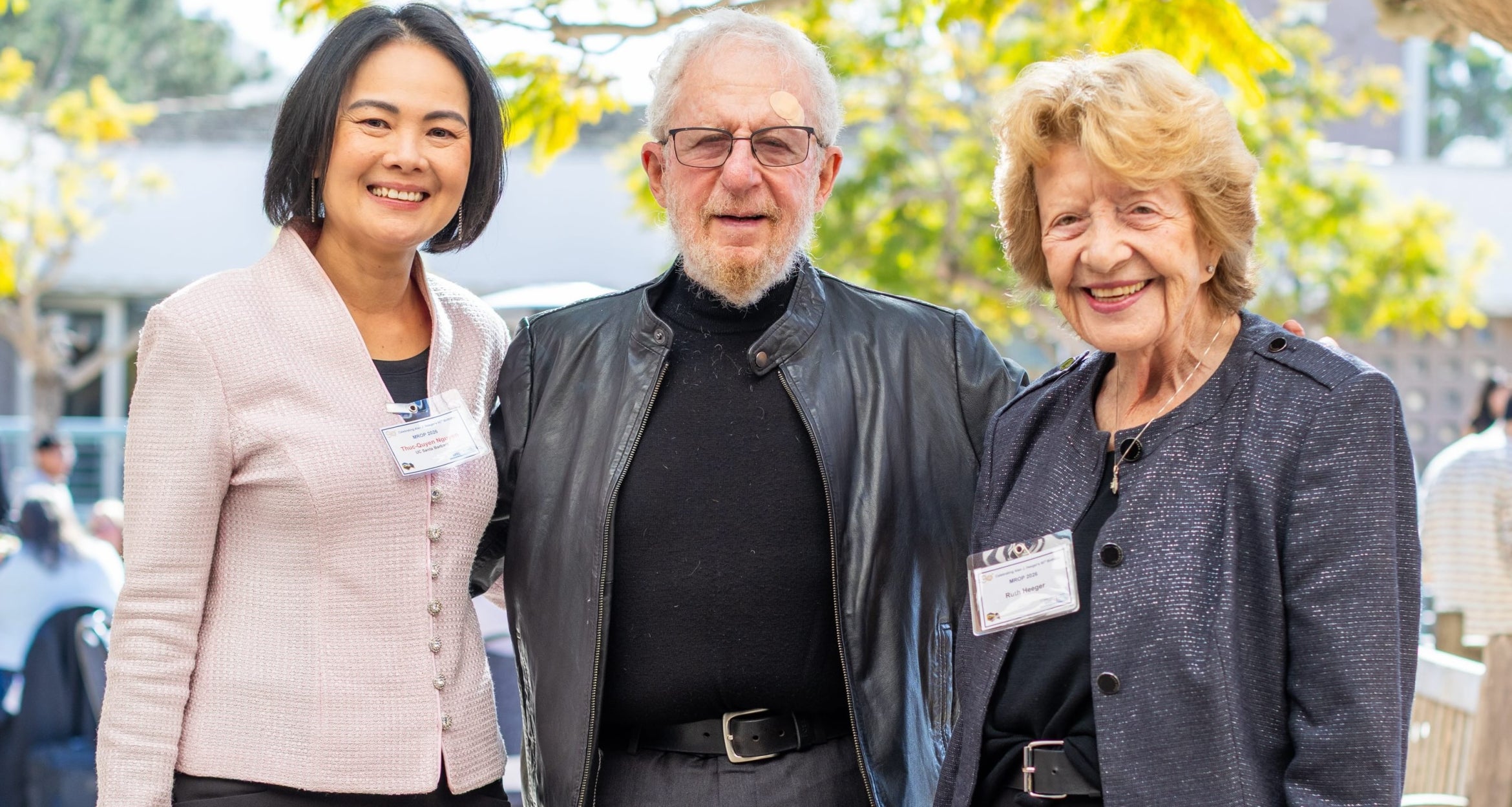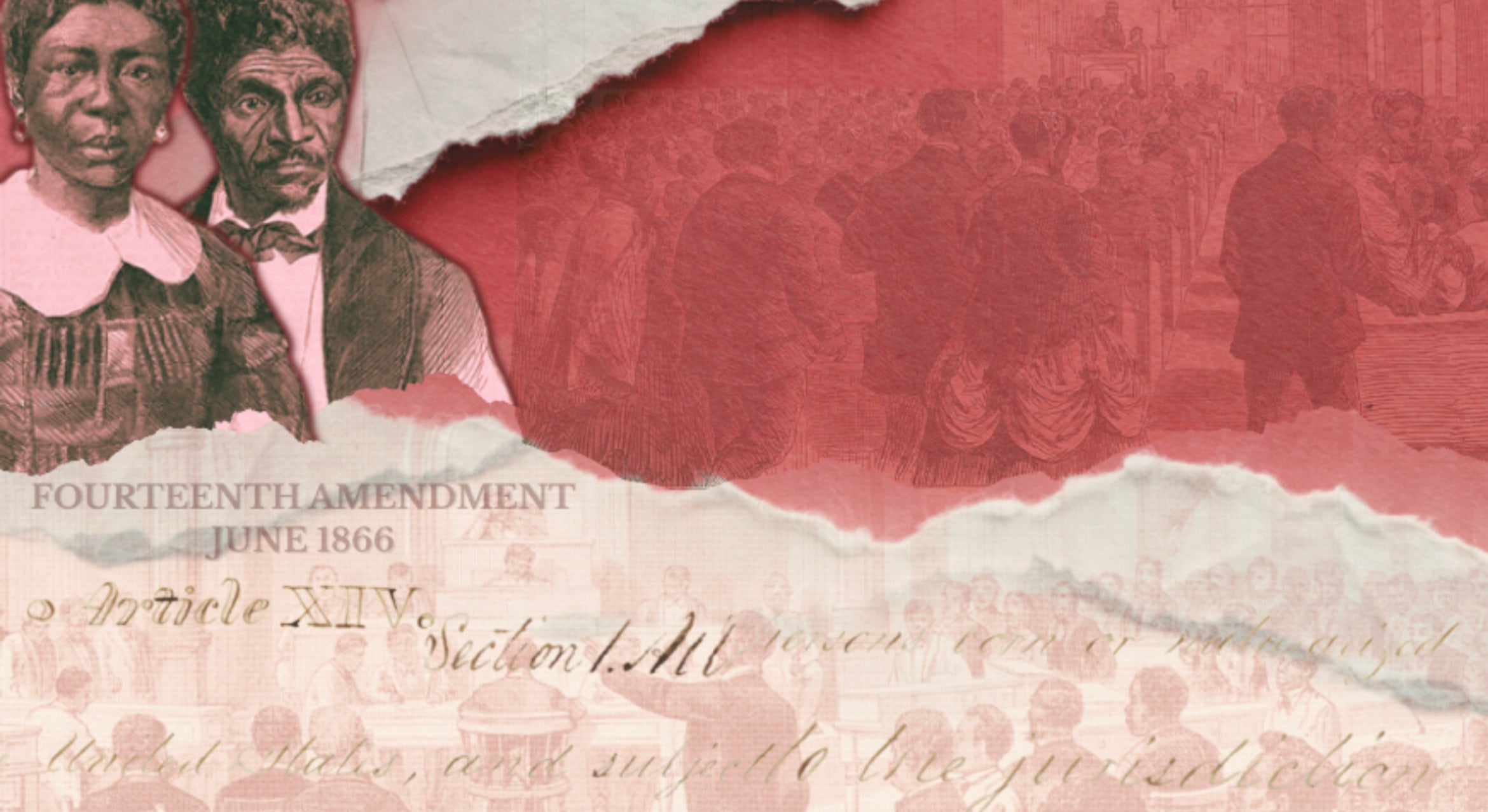Innovation in the Stacks
Some things are just meant to be. For Kristin Antelman, a life in libraries, it seems, was one of those things.
During high school, Antelman spent hours meandering the library at the University of Chicago. Then it was off to college at the University of Michigan, where again the library was a place of retreat — and also a student job. Ditto for her graduate years at Columbia, and still more graduate years back in Chicago.
“I spent a lot of time in libraries as a student and I always appreciated the vast store of knowledge,” said Antelman. “Just seeing what’s out there, visualizing the great span of history, going back in time, to discover things you had no idea about — I’m one of those people with roaming-the-stacks nostalgia.”
Fortunately, she can assuage that sentimental twinge anytime she likes: Antelman today is the new university librarian at UC Santa Barbara. She arrived in April, having previously led the libraries at Caltech for four years and, as associate director, at North Carolina State University for a dozen years before that.
Along with her ardent belief in the promise libraries offer of knowledge and opportunity, Antelman brings to her new campus a passion for technology and innovation. And she intends to leverage it all to help advance the UCSB Library by helping students and faculty to advance scholarship.
“A public university is such a dynamic place for libraries as they evolve, rapidly,” said Antelman. “I see the UC system as a place where innovation is really happening on all sides — research and students, teaching and learning. It’s a great time to be in the UC, and UCSB as an institution has been growing by leaps and bounds, from the quality of students it’s attracting, to its research profile and faculty.”
From unique spaces and departments such as Special Research Collections and the Interdisciplinary Research Collaboratory, to programming initiatives including UCSB Reads and the Pacific Views Series, the library that Antelman has come into is one seriously robust operation. It’s also busier — and buzzier — since its recent renovation and expansion.
“Having a new library is an incredible foundation to build on,” she said. “You see the students embracing it — it’s really packed to the gills. It’s both an opportunity and a challenge. I look forward to working with students and student leaders, learning from them how the library can serve them even better.
“The library is a clear component of success for students and the instruction that our librarians do in our Interdisciplinary 1 course and others supports students in their academic success,” Antelman continued. “It’s so important to engage with undergraduates and help them navigate a world where so much information is not as self-evidently organized as when you’re going through the stacks or the old-style card catalogue. It’s much more diffuse. Helping young people see how it is structured, that peer-reviewed journal articles have a level of authority in terms of accurate information on which to build an argument or advance scholarship — that’s very important. Wikipedia is a great place to start, but you don’t want to end there.”
Such essential instruction is further augmented by the Ask a Librarian initiative, which makes subject specialists available in myriad formats — online chat, a reference desk, by appointment, email or phone.
Teaching students to use all the library’s resources — the traditional, the technological and the human — is a central library function upon which Antelman hopes to expand. And to extend beyond students to researchers.
“One of the five laws of library science is to save the time of the reader,” said Antelman, whose passion for leveraging technology to help libraries better serve users was first sparked in library school. “Libraries have done an amazing job over the last few decades with digital scholarship, journals and e-books, to bring the research to the researcher, to save their time and make their work more productive and efficient. I think that benefit is really felt across the board. But it’s complicated.
“There is a goal of enhancing digital infrastructure,” she said, “and we have the modern foundation on which to build — with UCSB Library Search, our new search system, and our partnership with the California Digital Library — in delivering information, digitally, more effectively and efficiently.”
An emerging priority for libraries across higher education is the concept of “open science,” or open access to published scholarship and its underlying research data. The UC’s academic senate in 2013 adopted an open access policy ensuring that future research articles authored by faculty systemwide is made freely available to the public. During the same period, research funders were also requiring greater openness of the research they funded.
As research publications not only move online but, more than ever, exist only electronically, it makes perfect sense that research data would follow. Indeed making data freely available, in addition to articles, is a newer and increasingly major push in many communities of researchers. And it’s one that Antelman hopes to help drive further from her new post at UCSB.
“Ultimately it advances scholarship when the data as well as the publications are more open and accessible to everybody,” she said. “Our Interdisciplinary Research Collaboratory is a great anchor and home for us to work with our scholars and students on what that looks like, and across disciplinary boundaries. The UCSB Library has strong roots in geospatial data management and tools and we are building out from that to bring in data curators in the humanities, social science and the sciences — a full complement of experts — to work with researchers in the research data archiving area.”
Digital technologies may be the here, the now and the future, but in this world of information abundance, Antelman asserted, print still records our collective history and contributions to culture.
“We continue to buy print, and we still borrow and lend many print books within the UC and beyond,” she said. “They are key in supporting scholarship in many areas where the information is not digitized, which unless you’re studying the very recent past is most scholarship.
“Libraries are thriving more than ever,” she added. “What I love about libraries is they are so core to what I think are the founding values of a democratic and open society — everybody has equal access to information, to education, to knowledge and equal opportunity. Libraries help fulfill that promise. Being in a business that’s trying to advance those values is incredibly positive and rewarding.”



